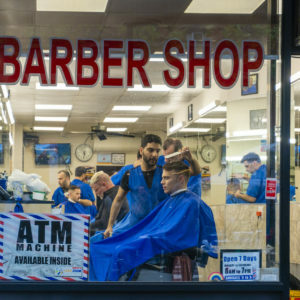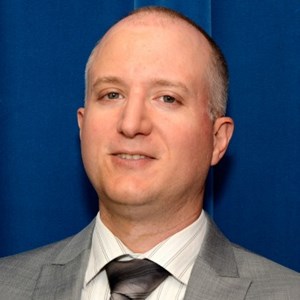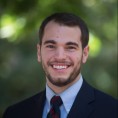Coming to America as an immigrant can be difficult — a new country, a new culture and often even a new language. Unfortunately, unnecessary occupational licensing restrictions create barriers for immigrants, making it much more challenging to start lives in America.
Barbering is a common profession for immigrants. Take Amar, a Syrian refugee who has cut hair for about 20 years. When he first arrived in the United States, he knew he wanted to start work as a barber.
But only some people can become a barber. In all states, before you can start cutting hair professionally, you must be approved by the government. A license to practice barbering requires education, training, exams, fees, a clean legal record, and more.
The stated purpose of licensing is to protect consumers. In theory, it can be hard to know whether a professional will be good until you receive a service from him or her. For some professions, these harms can be costly or dangerous. To alleviate this challenge, states can require a license, where professionals demonstrate their ability before they practice. The hope is that this can prevent low-quality services and injuries to consumers.
So what’s the problem with licensing?
To start, occupational licensing usually doesn’t live up to its goal. Research struggles to find evidence that licensing improves the quality of services. Sometimes, it can even harm people, when they are forced to do it themselves or turn to the black market.
That’s not to say that licensing has no effect. Consumers end up paying more for the same services. That’s because licensing laws make it more difficult for aspiring professionals to start working. Research on barbers finds that states with stronger licensing requirements have fewer barbers. Being forced to go through lengthy and pricey education programs, pass exams and pay fees upfront discourages many from entering the profession.
The discouraged barbers tend to be members of certain groups. Many are from low-income backgrounds and cannot give up any income for up to a year to spend on education. Barbers from other states must reapply for licensure in their new state, which takes time and money. It makes licensed professionals move less often than non-licensed workers. Barbers from other countries face even more significant barriers.
Immigrants can be trained in other countries and practice for years, but none of that experience is accepted. They have to start from step one enrolling in a barber school, and slowly meeting all requirements without the opportunity to demonstrate their skills. Taking a year off to go to school is impractical for someone who moves to a new country.
But it doesn’t have to be that way. Instead of relying on licensing, states could opt for voluntary certification. Barbers could continue going to school and passing exams as they do now. But it would not be required. If consumers believed the requirements were necessary, they could limit their business to certified barbers. This is the system used in the United Kingdom, and several other European countries also employ lighter-touch regulations of the profession.
Voluntary certification would reduce the barriers to entry for aspiring barbers — whether born abroad or in the United States. People from all backgrounds would be able to become barbers more easily, while consumers could still use the certification if they find it valuable.
Licensing requirements often act as a barrier to entry, protecting professionals from competition instead of consumers from harm. Removing unnecessary licensing requirements and making them voluntary would help immigrants take the first step in achieving the American Dream.
Barber licensing laws across America present a unique burden for barbers from other countries. Reforming them would help immigrants and natives alike, all without harming consumers. Trimming barber licensing is an easy win.
Please follow DVJournal on social media: Twitter@DVJournal or Facebook.com/DelawareValleyJournal



